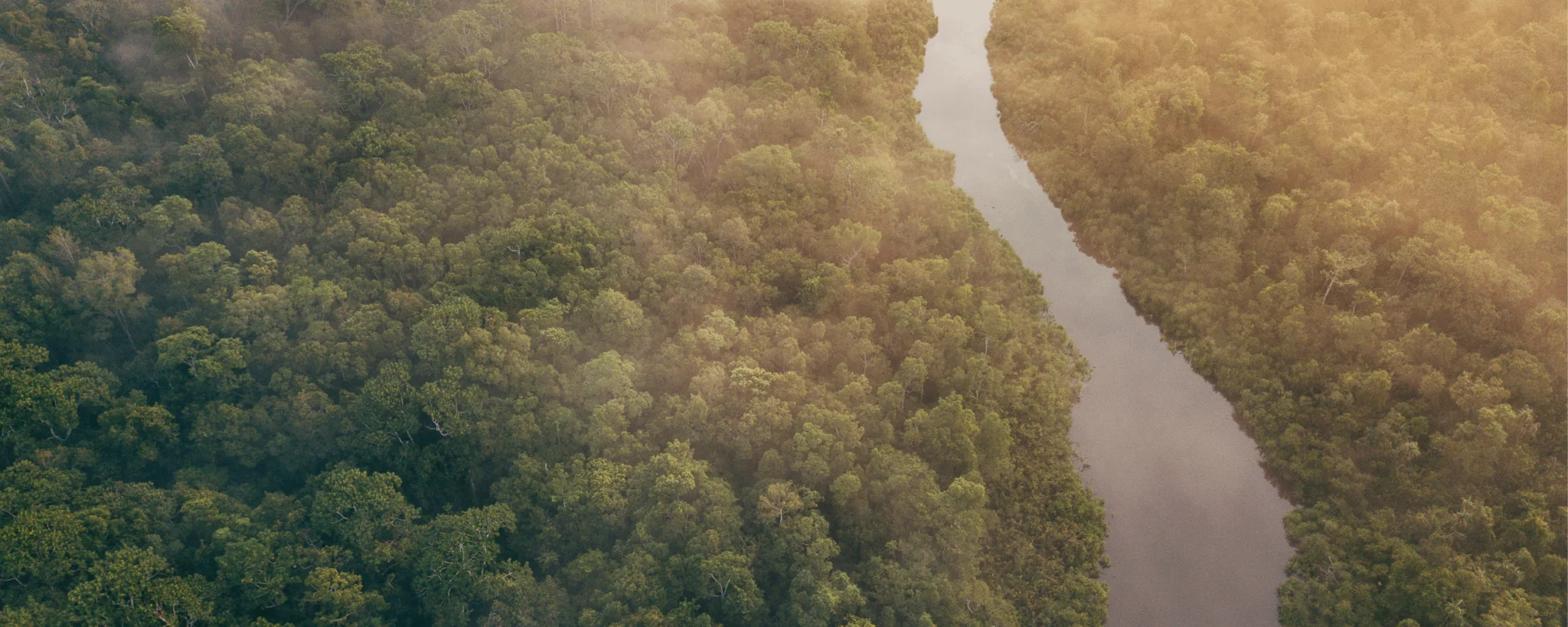
2025 Top Ten Emerging Conservationist Finalists
INDIANAPOLIS, Ind. – Officials from the Indianapolis Prize—the world’s leading award for animal conservation—have named ten Finalists for the 2025 Emerging Conservationist Award.
The Emerging Conservationist Award, made possible by the Kobe Foundation, is given to a conservationist under the age of 40 who is making a clear impact saving a species or group of species. The Winner will receive $50,000 to further their efforts.
The Indianapolis Prize is a signature conservation initiative of the Indianapolis Zoo. At a critical time for our planet, the Indianapolis Prize brings the world’s attention to the cause of animal conservation and the brave, talented and dedicated people who spend their lives saving the Earth’s endangered animal species.
The Finalists for the 2025 Emerging Conservationist Award:
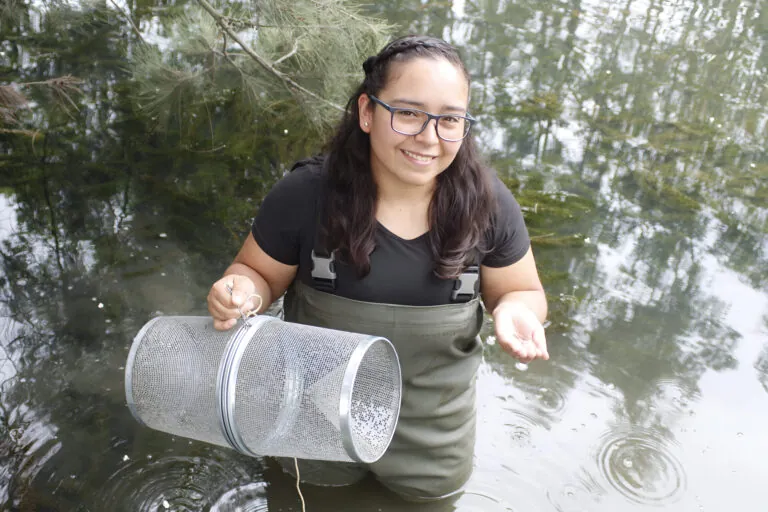
Arely Ramírez-García, Ph.D.
Accomplished conservationist in freshwater fish ecology of central Mexico, Dr. Ramírez-García has been instrumental in the reintroduction of two ‘extinct in the wild’ species to the Teuchitlán River. Ramírez-García is involved in numerous reintroduction programs and focuses on the control and eradication of invasive species such as animals, plants and other organisms introduced outside of their natural range.
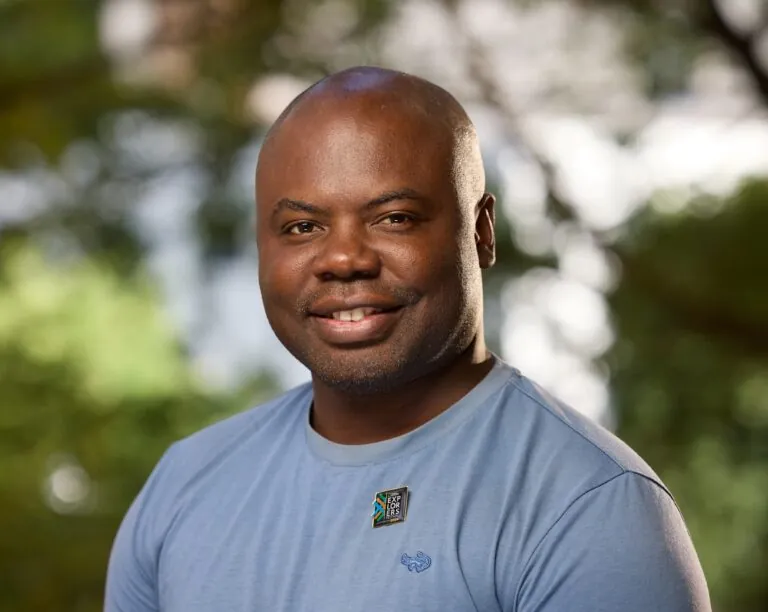
Aristide Takoukam Kamla, Ph.D.
Marine wildlife ecologist dedicated to African manatee conservation, Dr. Kamla founded the African Marine Manatee Conservation Organization in 2024. The non-profit’s vision is to make Africa’s coastal and aquatic environment a safe home for marine species, while considering the best interests of local people. Kamla created the SIREN mobile app to help fishers report opportunistic sightings, bycatch and strandings of aquatic megafauna along the coast of Cameroon.
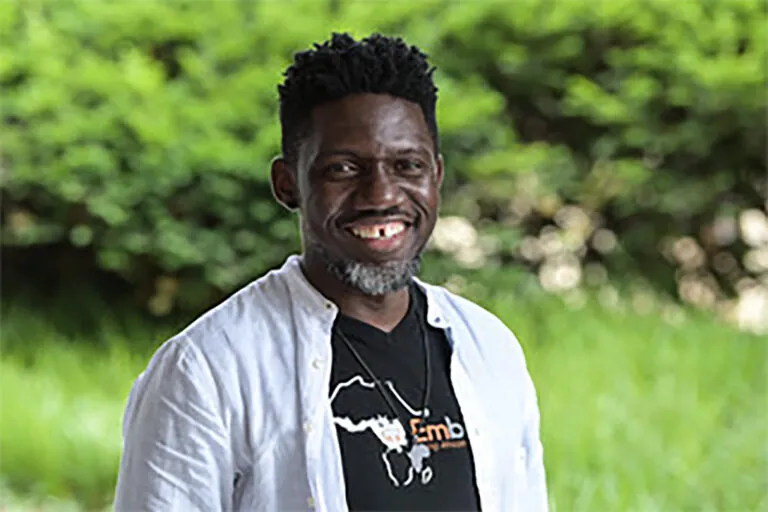
Mwezi Badru Mugerwa
Researcher and conservation community leader working to protect the African golden cat, Mugerwa established the first community-based anti-poaching project at Bwindi Impenetrable Forest National Park in Uganda. Under his leadership, the non-profit has developed into a formally registered local conservation organization called Embaka with 1,900 members. Through Embaka, he has pioneered creative solutions to tackle poaching and human-wildlife conflict.
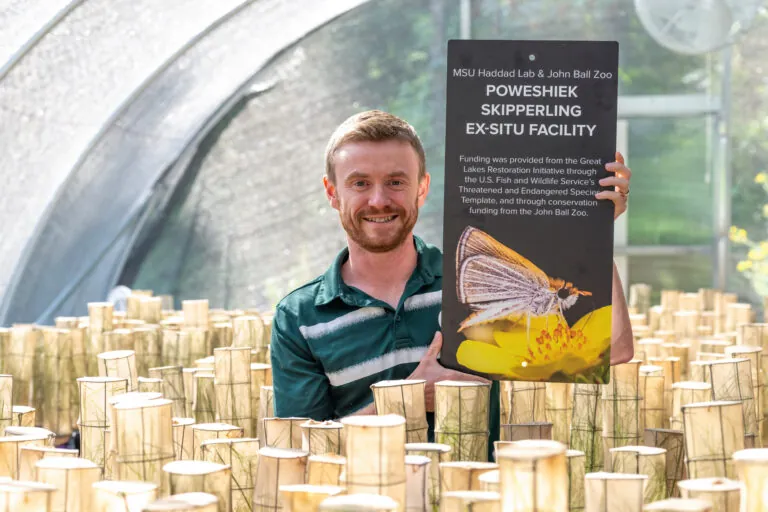
David Pavlik
Conservation biologist with expertise in the recovery and reintroduction of North America’s most endangered butterfly species, Pavlik lends his knowledge on captive rearing to conservation programs throughout North America. Through his expert advice, these programs have successfully prevented extinction, namely saving the federally endangered Poweshiek skipperling butterfly, growing the highly imperiled pollinator species population to nearly 2,000 individuals.

Elisa Panjang
Dedicated conservation biologist with more than a decade of experience, Panjang leads conservation efforts for Sunda pangolins in Malaysia as the founder and director of Pangolin Aware. Panjang’s groundbreaking research has greatly enhanced the understanding of this elusive species. Her scientific and technical advice has been a key piece in strengthening legal frameworks that protect the future of pangolins.
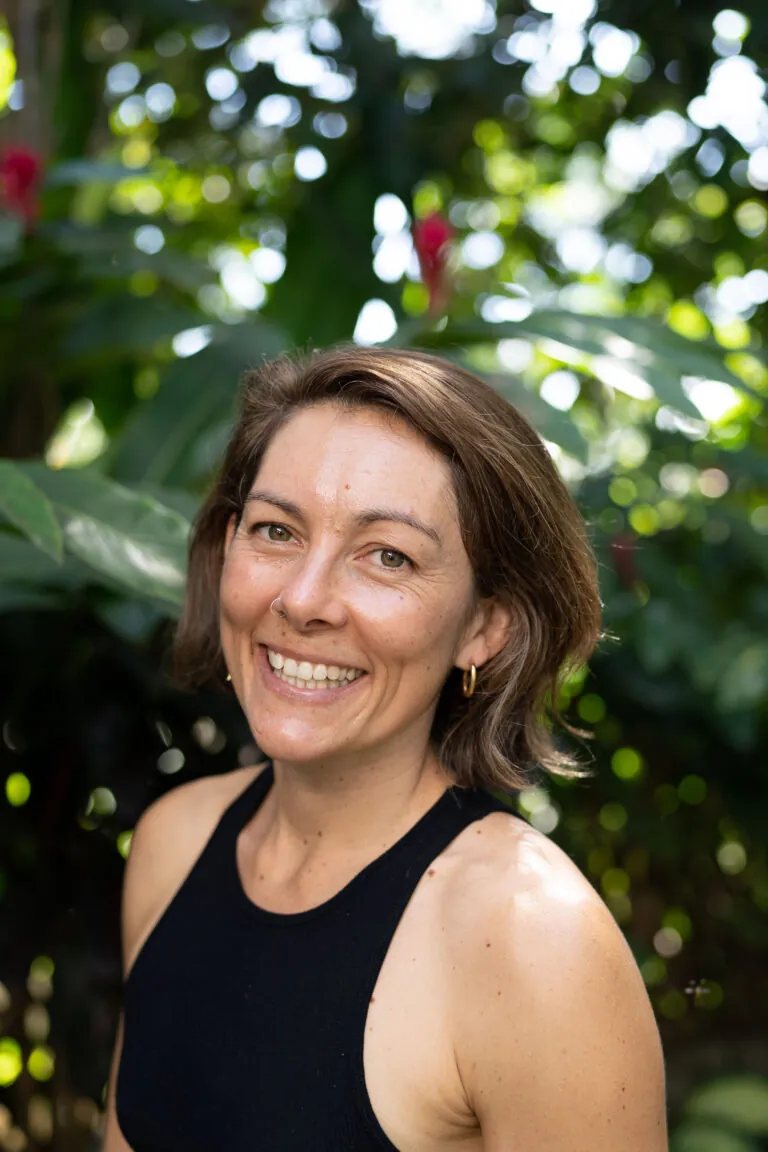
Hollie Booth, Ph.D.
Marine conservation researcher Dr. Booth has dedicated her career to designing and implementing effective programs to protect Indonesia’s shark and ray populations. As the founder and chair of the NGO, Yayasan Kebersamaan Untuk Lautan, Booth has worked with local government, researchers and small-scale fisheries to establish the world’s first randomized trial of pay-to-release program for critically endangered sharks and rays. Dr. Booth applies her research to advocate for both governmental policy and practical applications such as private-sector funding.
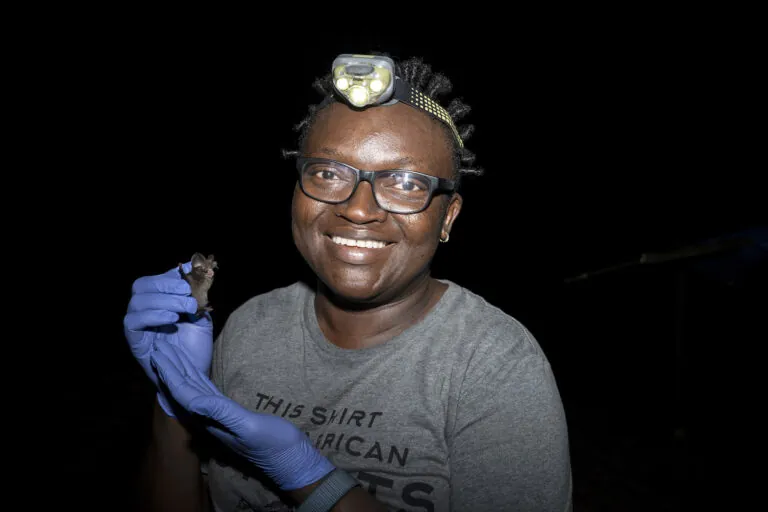
Iroro Tanshi, Ph.D.
Leading bat conservationist, Dr. Tanshi aims to create a future for African bat species. In 2016, Tanshi discovered a small population of the rare short-tailed roundleaf bat, a species that had not been seen in 40 years. She founded the Small Mammal Conservation Organization after this discovery to draw attention to their silent extinction and amplify research findings regarding the unique habitat needs of small-sized mammals that are often neglected by conservation and ecology programs.
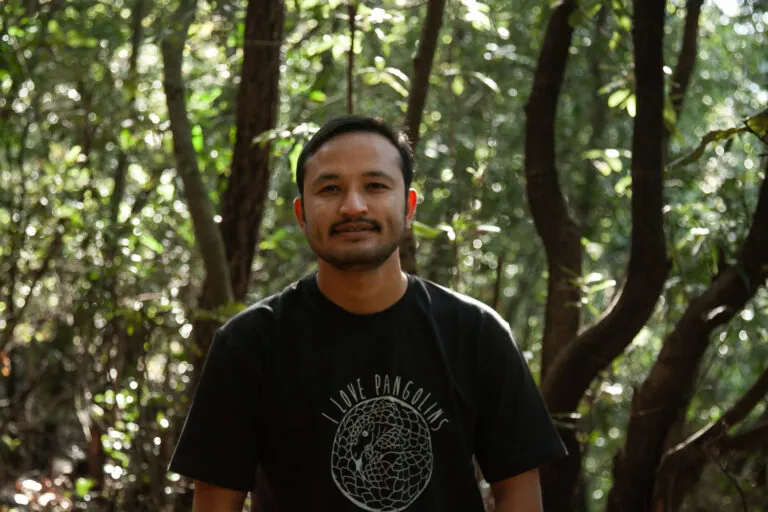
Kumar Paudel
Conservation practitioner focused on protecting Nepal’s critically endangered pangolins. Paudel created the Nepal Pangolin Roundtable in 2015 through an organization he founded, Greenhood Nepal. Because pangolins were a relatively misunderstood species, he gathered key stakeholders to scale efforts to protect them. The event catalyzed a species action plan and resulted in policy frameworks aimed at saving pangolins from poaching and illegal trade.

Sergio A. Balaguera-Reina, Ph.D.
Pioneering conservation biologist focused on understanding the roles that crocodile species play in aquatic and coastal systems. Dr. Balaguera-Reina develops conservation plans that provide support for crocodiles and other species as well as the habitats and landscapes that they inhabit. Two years ago, he was named a 2023 Indianapolis Prize Emerging Conservationist Finalist. His accomplishments also include co-founding an NGO, ProCAT, in his native Colombia. ProCAT engages with local communities to advance practical conservation measures.
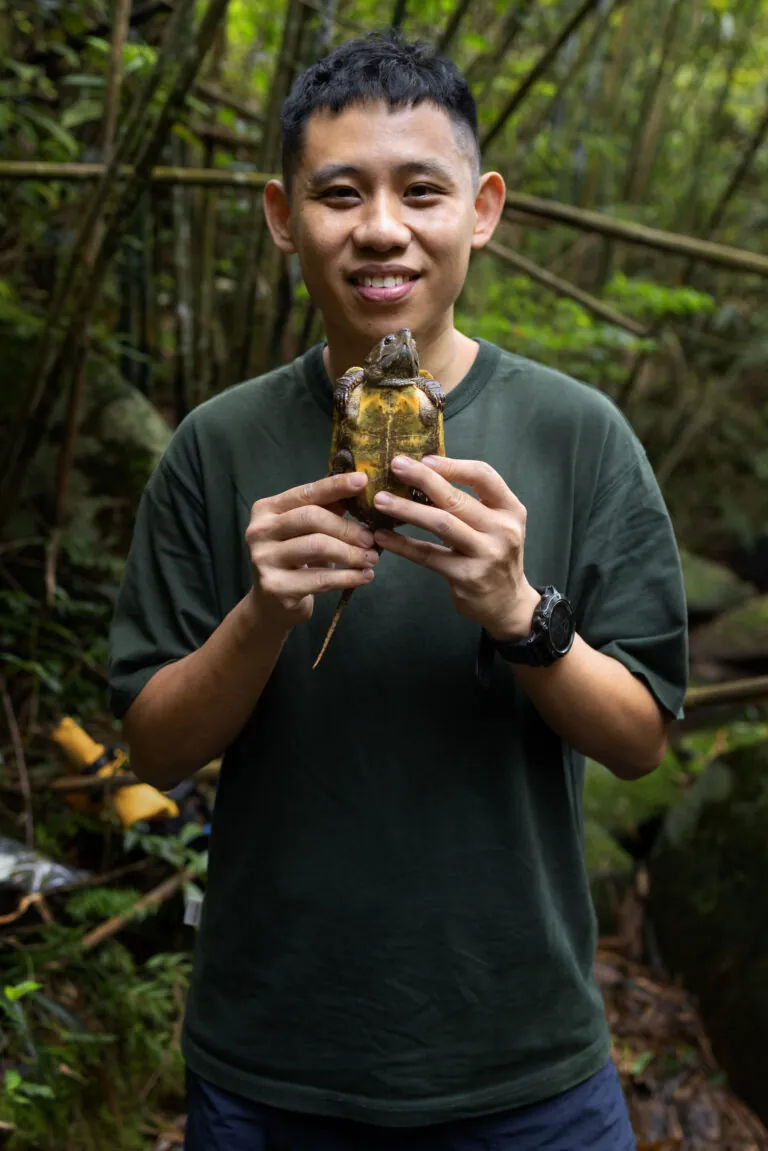
Yik-Hei Sung, Ph.D.
Ecologist and conservationist striving to protect endangered freshwater turtles and tortoises in Asia due to illegal trafficking and poaching. Prof. Sung’s research has been pivotal in informing conservation actions locally and globally. Sung’s technique using infrared cameras aids in successfully detecting illegal hunting and trade.

